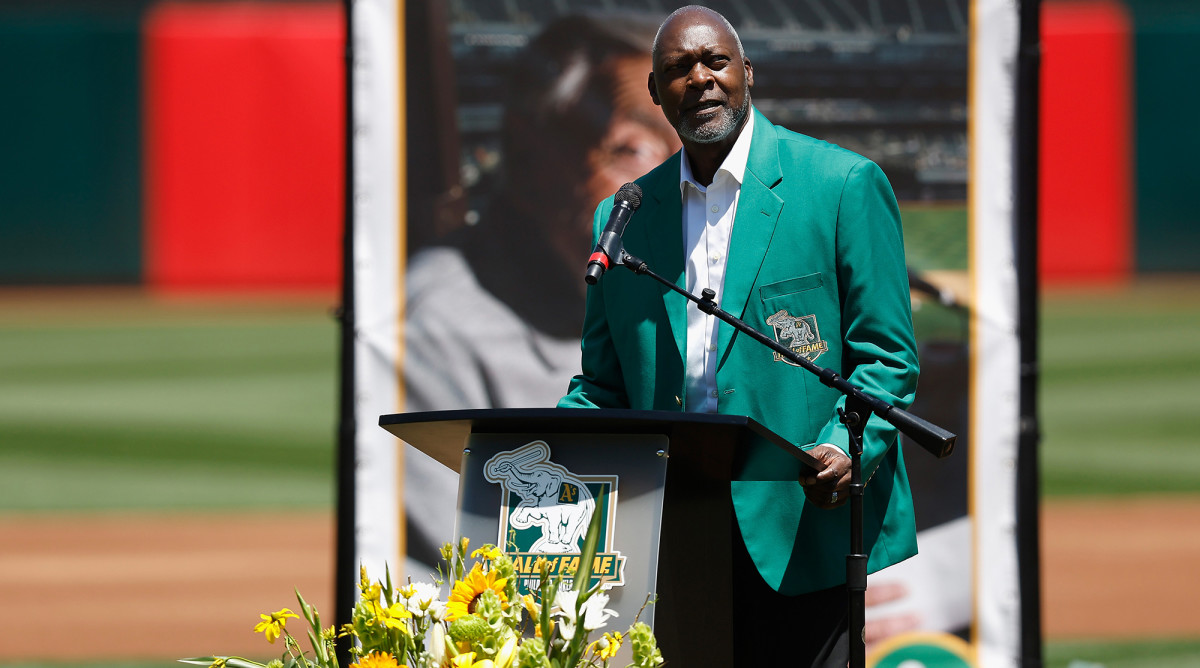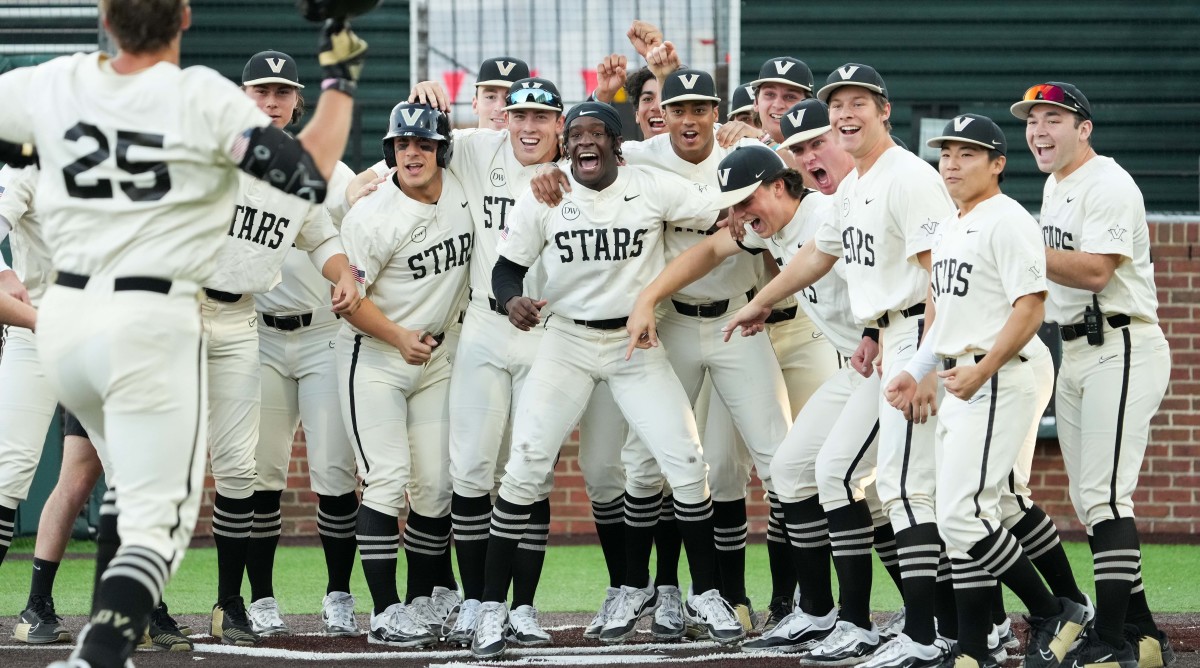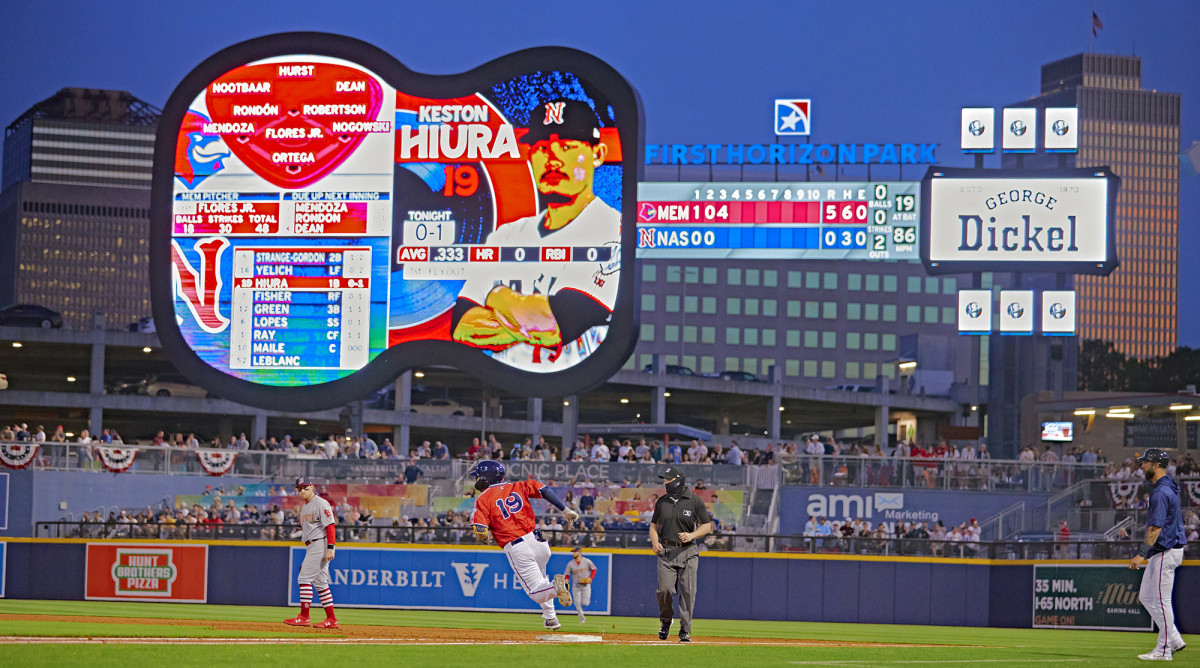Dream Team: Dave Stewart Is Ready to Bring a Minority-Owned MLB Franchise to Nashville

One moment. One person. What propels a life forward can arrive without warning. So it was for Dave Stewart, then a 19-year-old minor league pitcher in the Dodgers’ system, though his status as such seemed as shaky as the direction of his pitches.
It was the fall of 1976. Stewart was sitting on a bench at Rendezvous Park in Mesa, Ariz., where the Dodgers were holding an Instructional League camp. A man approached him and said, “Will you allow me to help you? I can help you, but you need to trust me.”
The first thing Stewart noticed about the man was that he was white. On that observation alone the Black teenager thought to himself, “Now that is going to be difficult for me.”
Stewart grew up in East Oakland, one of the city’s poorest and most troubled neighborhoods, an area that gave rise to the Black Panthers and civil rights protests that would provide his prism through which to see the world.
He signed out of high school as a 16th-round pick. He noticed he was the only Black pitcher on his minor league teams and that Al Downing was the only Black pitcher for L.A. He struggled terribly in those first two seasons in Class A, going 1–8 with a 6.23 ERA and more walks than innings pitched.
“I wasn’t getting any help and I didn’t know why people weren’t helping me,” Stewart says. “I just thought nobody wanted to help me because they didn’t think I was going to make it. And then there was a change in my life.”

The white man offering his help was Sandy Koufax. The Hall of Famer was at camp working for the Dodgers as an instructor.
“I was you,” Koufax told Stewart.
Stewart looked around the park in disbelief and laughed out loud at the idea that the great Dodger had anything in common with him.
“When I signed,” Koufax told him, “I signed for $100,000 and I had to come to the big leagues right away. I was wild.”
Koufax pointed to a chain-link fence. “I don’t know that I could hit that fence back then. I had to learn how to throw strikes. There’s a lot that you’re doing right now that used to be me. And I can help you. But you need to trust me.”
Stewart agreed to listen to him.
“For a white man to ask me to trust him is a difficult thing for me,” Stewart says. “But I did it. It was the best thing that I ever did in my baseball career. He changed my life. He took me from a guy that had one win in two seasons to a guy that won 18 in my third season.”
Stewart told that story in 1994 to Walter Haas, then the owner of the A’s, when Haas presumed that as Stewart’s career was winding down he would stay in the game as a coach. No, Stewart told him; he wanted to run a team. He wanted to be a general manager.
Stewart is telling the story again now. It helps explain why, he says, he believes he will bring an MLB expansion franchise that is predominantly minority-owned and operated to Nashville within five years or so.
“I’m saying what I told Walter,” Stewart says. “Nothing’s been easy for me, and I haven’t been afraid.”
He met with baseball commissioner Rob Manfred in May 2022 to spell out his vision. “I’m not doing this to have you walk through the offices and see a bunch of Black people,” Stewart says. “That’s not what this is about. This is about all people. Males, females, Black, white, Asian … where you can really walk through an office and see what the country is supposed to be like.
“If I’m allowed the opportunity to get this team, well, that’s what baseball needs. That’s my vision. And it’s diversity in every form, including diversity of thought. A lot of people have focused on Black ownership, but it’s minority-slash-diverse ownership.”
Stewart is part of a potential ownership group, Music City Baseball, that formed several years ago and includes real estate developer John Loar, former U.S. Attorney General Alberto Gonzales, Negro Leagues Baseball Museum president Bob Kendrick and former Titans running back Eddie George. They intend to build a ballpark with private funds along the Cumberland River on land controlled by Tennessee State University (an HBCU) and call the team the Nashville Stars, an homage to former Negro Leagues teams of that name.

MLB has deferred serious talk about expansion until the A’s and Rays finalize their efforts to secure new ballparks. The A’s intend to begin play in Las Vegas in 2028, which gained unanimous approval from baseball owners in November. The Rays in September announced plans to build a $1.3 billion domed ballpark as part of a redevelopment of their Tropicana Field site in St. Petersburg. The proposal, which contains $600 million of municipal money, must still pass through a public approval process.
Depending on when those stadium issues are fully resolved, MLB could add two expansion teams as soon as 2028 or ’29, according to sources familiar with informal timelines. The last expansion in baseball occurred in 1998. The Diamondbacks and Rays paid expansion fees of $130 million then. In 2021, Manfred said the next expansion fee could be in the range of $2.2 billion.
“I won’t talk about my investors,” Stewart says. “What MLB has told me is that you make sure through this process that you put together your money, your cash. And I’ve done that. That’s been my focus over the last two years.”
As far back as 2018, Manfred has mentioned Austin, Charlotte, Montreal, Nashville, Portland, Salt Lake City and Vancouver as possible expansion cities.
Nashville has a metropolitan statistical area population of 2.07 million people, which ranks 35th in the United States and is smaller than every current MLB market except Milwaukee. It is also smaller than Portland (2.5 million) and Charlotte (2.7 million). As a television market as designated by Nielsen, Nashville ranks 27th, ahead of Baltimore, San Diego, Cincinnati, Milwaukee and Las Vegas.
In its favor, Nashville has a growing population—up 14.6% in the past decade—and major sport successes with the Predators, Titans and Nashville SC all routinely drawing near-capacity crowds.
“The way I look it,” says Tony La Russa, the Hall of Fame manager who coached Stewart with the A’s and has advised the Music City Baseball group, “whatever Dave gets involved in, he’s going to be successful. He’s very intelligent and he has a personality that people respond to.
“Just start with all the boxes he has checked over the years. The next challenge is ownership. There’s no doubt in my mind that he will attack it in the same way as his other challenges: with intelligence and integrity.”
Stewart is best known as the workhorse ace of his hometown A’s. He is the last pitcher to win 20 games and throw 250 innings for four consecutive seasons (1987 to ’90), during which he won the ’89 World Series MVP Award and the ’90 Roberto Clemente Award, given to the game’s most outstanding humanitarian. He did so with one of the sport’s classic game faces, a steely scowl from underneath a cap pulled low over his eyes in a look players called “The Death Stare.” Stewart won 168 games, not including a 10–6 postseason record in which he won three world championships with three teams (’81 Dodgers, ’89 A’s and ’93 Blue Jays).
As much as his successes define him, so do his failures, including those first two minor league seasons. Stewart had been a catcher at Oakland’s St. Elizabeth High when the Dodgers signed him and sent him to Bellingham, Wash. His manager there, Bill Berrier, greeted him by telling him the Dodgers were converting him to a pitcher.
“I’m not doing it,” Stewart insisted.
“Let me ask you a question: How did you get here?” Berrier asked him.
“I flew from Oakland to Portland. Then I flew from Portland to Bellingham. Why?”
“Because if you don’t want to pitch, you’re going home on a bus right now.”
Stewart stuck around. Koufax helped him command the baseball with less effort. Stewart was in the big leagues within two years of their first conversation. The majors proved difficult. After being traded to the Phillies, who released him within a year, Stewart landed in Oakland, where he eventually became a fixture at the front of La Russa’s rotation. “Just look at this guy’s history,” La Russa says. “In that tough neighborhood in Oakland, his mother, Mama Stew to us, in the middle of all that temptation, the crime, the drugs—he never had a problem, because she showed him tender, loving care. He grew up dodging all that potential trouble. That partially explains the toughness and accountability he has.”
After retiring midway through the 1995 season Stewart joined the A’s front office as a special assistant to GM Sandy Alderson, then joined the Padres as an assistant to GM Kevin Towers and subsequently became an assistant GM in Toronto. He thought he was in line to be GM when the job opened in 2001, but the Blue Jays hired J.P. Ricciardi. Stewart blasted the franchise and MLB at the time, saying, “They think the only people capable of doing these jobs are white people, not minorities.”
Toronto president Paul Godfrey, who denied race was a factor, asked Stewart to stay on. Stewart’s response: “I said, ‘I refuse to do that.’ I resigned.”

He started a sports agency. “I was done with baseball,” says Stewart. La Russa, then running the Diamondbacks, hired him in September 2014 to be his general manager. “What was disheartening, never once did I talk to the owner of the team [Ken Kendrick] in that whole process,” Stewart says. After two losing seasons Stewart was fired, and La Russa was demoted.
But his struggles working for other people in the front office did do something: They motivated Stewart to put himself in a position where he would be calling the shots. In 2017 he and Loar joined forces to try to purchase the Marlins.
“That was my first itch to own,” Stewart says. “That itch came because of all the injustices that I faced. Climbing the ladder, doing everything the right way, doing everything I was asked to do and not stepping outside of it … and still I was treated poorly. So from that point, for me, the next thing is to own it.”
Loar and Stewart dropped out of the bidding for the Marlins because, Stewart says, “We realized it wasn’t a good investment. You had an organization that’s stuck in Miami. They can’t move. They can’t relocate. It’s not conducive to being able to build any type of fan base at all.”
Loar, who had failed in a bid to buy the Dodgers in 2012, and Stewart turned their attention to Nashville. They have worked on establishing a brand even without a team, recruiting music stars such as Memphis native Justin Timberlake and Darius Rucker as advisers, and earmarking 50% of merchandise sales to the Negro Leagues Baseball Museum. The ballpark site was chosen to revitalize an area that has not kept pace with the rest of Nashville’s growth.
“With baseball as an anchor it will allow the area to flourish,” Stewart says.
Stewart’s initial plan was to revitalize his hometown. In 2021 he attempted to purchase 50% of the city of Oakland’s stake in the Coliseum site for $115 million to create mixed-use development, but the city council chose another bid. (The redevelopment project now faces an uncertain future.)
Since then, Stewart has focused on Nashville (he moved to the city last year) and the underserved neighborhood where his team would play. “I think about the community and how we can help in so many ways,” he says. “The college, the community … there’s not a grocery store. What are you doing, man?”
He was convinced that Nashville is the right place one day last summer. It was one of the hottest days of the year. His car blew a tire. He pulled over on the side of a highway. He hadn’t changed a tire in years. Suddenly, a man pulled over behind him and got out of his car. “Need some help?” the man asked. The man was white.
“A white man and a brother,” Stewart says. “There was a white man who pulled over on the hottest day of the year to help a Black man. And he sweated like I sweated and helped me change that tire. And he didn’t have to do it. That’s Nashville. Beautiful.”
